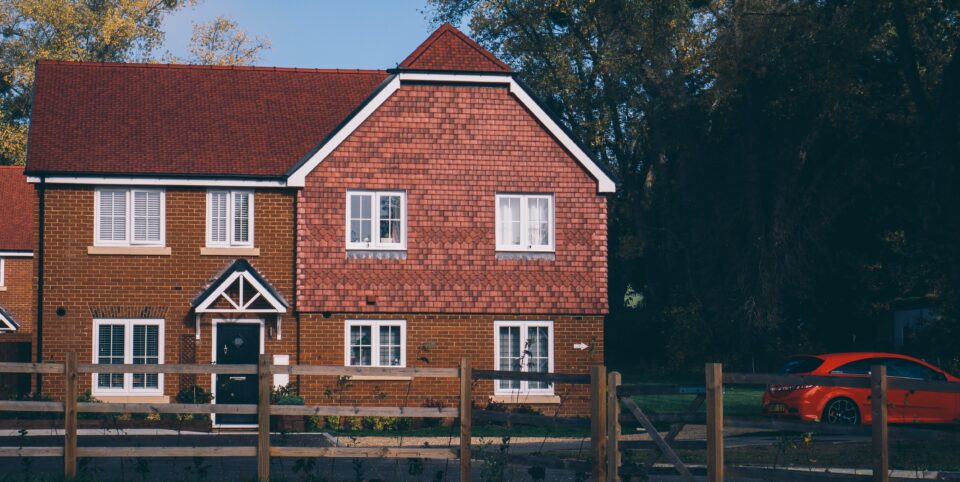Contact
020 4515 6728
info@ccameron.co.uk
Charles Cameron & Associates
Blackfriars Foundry
154-156 Blackfriars Road
London SE1 8EN
Flipping properties – is it as simple as it seems?
January 17, 2024
Information published was correct at the time of writing
Survey reveals 68% of flips took less than six months to complete, from purchase to sale

‘Property flipping’ is a term generally used to describe the act of buying a property at below market value, renovating it and then very quickly selling it on again at a profit. According to a new survey, almost two-thirds of recent property flippers made profits of between £10,000 and £75,000, compared with just 1% who made a loss[1].
One of the most important decisions you will make when flipping a property is how you finance your purchase. While half of investors financed their flips through savings, around a third took out traditional mortgages, and bridging loans were used by a significant and rising percentage. The survey provided statistically significant data about property flipping over the last two years from experienced property investors and first-timers.
COMMITTED TO THE SECTOR
It demonstrates that, for a large and growing percentage of the UK population, property investment remains central to their investment strategies and that flipping homes plays a major role for many. Despite market conditions, 63% of respondents remain committed to the sector and think this is the right time to invest.
The survey also revealed that the great majority of flips (68%) took less than six months to complete, from purchase to sale, and that a quarter of transactions took place in London – ahead of other regions. The wider South East region and the Midlands both proved popular with property flippers.
So what kinds of improvements should people make to their properties, if they want to follow suit?
KITCHENS AND BATHROOMS
New kitchens formed the most popular refurbishment choices, followed by bathrooms and general redecoration, while many opted to add extensions (20%), loft conversions (17%) and garages (13%).
Apartments in residential blocks were a clear favourite for property flippers, chosen by almost 45% of respondents, with terraced homes (32%) in second place. Semi-detached homes (26%), apartments above shops or commercial units (18%) and detached properties (14%) were all suitable for trading, the survey found.
AN INCREASING APPETITE
On average, property flippers most commonly spent between £11,000 and £25,000 on refurbishments, readying their properties for sale. Around 22% spent more – up to £50,000 – and 22% spent less than £10,000, presumably relying on a fast-rising market to deliver a profit, rather than doing up their properties.
In July and August 2022, Google reported 32,000 searches for ‘flipping houses’, compared with just 18,000 in the same period for 2021, a rise of 77%. Clearly, there is an increasing appetite for the activity, as a wider cross section of the UK population recognises its potential.
6 PRINCIPLES FOR SUCCESSFUL PROPERTY FLIPPING:
1. APPLY THE 70 PER CENT RULE
This is a helpful way to calculate whether property flipping will be profitable. Work out the ‘After repair value’ (AVR) of the property – i.e. what you believe you could sell it for, once you’ve done some work. Multiply this by 70%, then subtract the likely cost of the work and other fees, such as borrowing costs. The resulting figure is the maximum you should pay for the property.
2. RESEARCH THE LOCAL MARKET
Study the sale price of similar properties in the area, so that you get a realistic estimate of what you’ll be able to achieve. Talk to local agents about the state of the market: are there any new developments (good or bad) that may affect the price of property in future?
3. DECIDE ON YOUR OWN ROLE
Some investors will be happy to redecorate properties themselves. Others are experienced carpenters or plumbers. If you’re not one of these, you’ll either need to hire individual tradespeople and oversee their work, or hire a contractor who will look after the whole project. There are cost implications with each decision.
4. WORK OUT YOUR TAX LIABILITIES
Both buying and selling property generally attracts tax: stamp duty when buying and Capital Gains, or Corporation Tax if you’re operating as a business, when you sell. Take advice on the most tax-efficient way to structure your transaction.
5. ALLOW FOR CONTINGENCIES
It’s worth keeping 10% of the budget in reserve in case conditions change. For example, materials such as timber or steel may become more expensive, or similar properties may come onto the market at a reduced price, in competition with yours. Interest rate changes may also make an impact on your budget.
6. TREAT FLIPPING WITH RESPECT
TV shows may present property flipping as a casual, easy-to-achieve pastime. Experienced property investors know that this is rarely the case. You have to devote time and resources, understand the market and be patient.
Don’t forget, our professional friendly advisors are on hand to support you and can help you explore all of your options.
Source:
[1] Finbri August 2022 Survey 1,000 respondents



